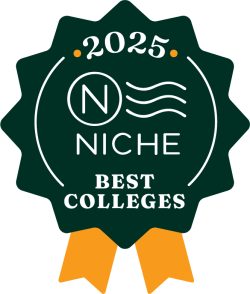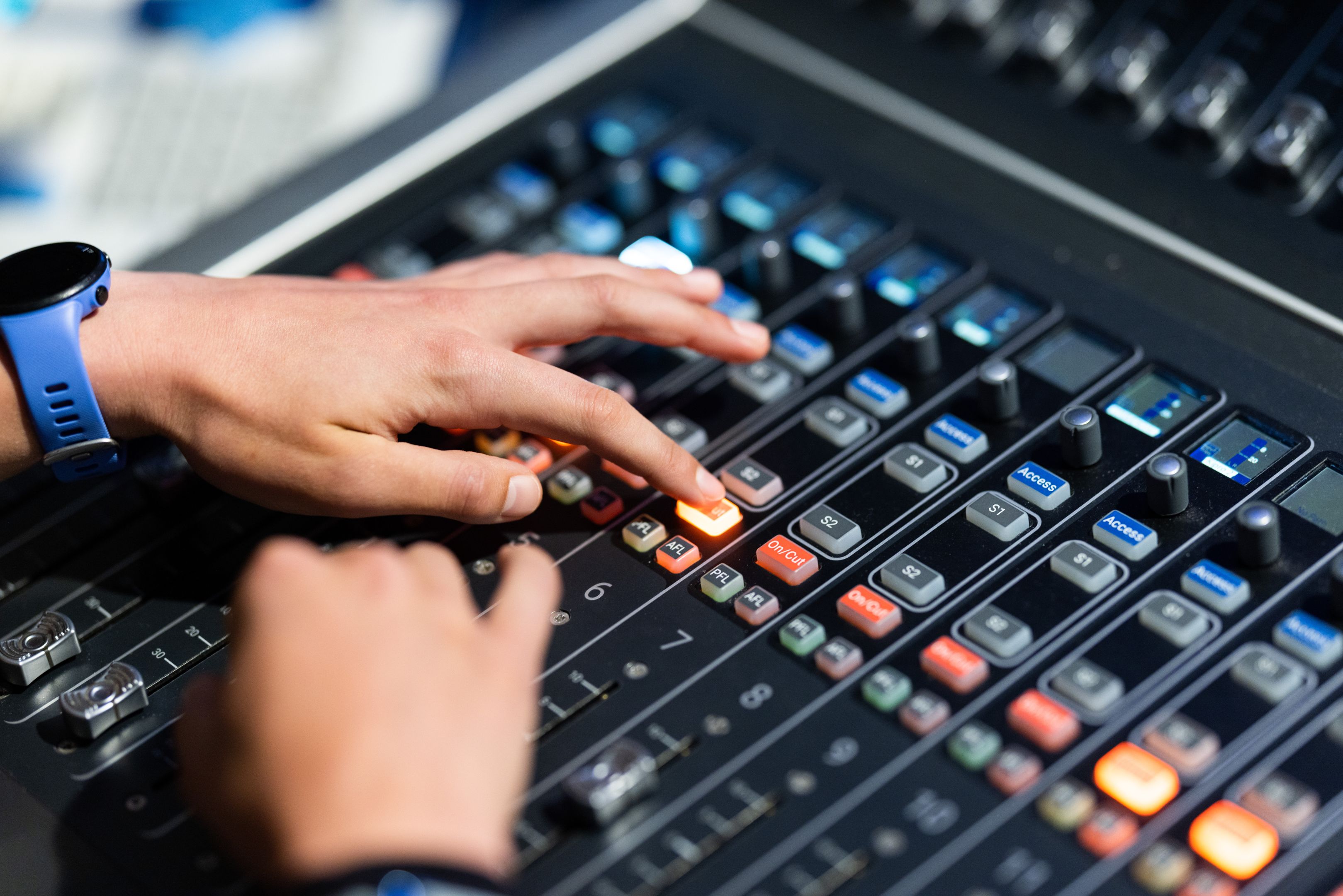Prepare to Work with Artists through Liberty’s Digital Media and Music Recording Degree
Imagine working with musical artists to see their visions come to life. Or picture yourself sitting with a professional band, helping them record the perfect set for their new album. A career like this is possible for you, all you need is the right skill set. That’s where our B.S. in Digital Media and Journalism – Audio: Music Recording degree comes in.
With a degree in music recording, you can prepare for the exciting field of music production. Our faculty and facilities will provide you with all the tools and mentorship you’ll need to develop your professional skill set. You will complete various projects and a practicum experience before you graduate that you can turn into an impressive portfolio for prospective employers.
Why settle for a degree or job that doesn’t excite you? Partner with Liberty to experience a program you’ll enjoy while preparing for a career you’ll love.
Award-Winning Campus
At Liberty, you’ll find an affordable, high-quality education that equips students like you for the real world. Our commitment to excellence helped us rank as the #4 Best College Campus in America by Niche.com. Earning your degree from a nonprofit university with state-of-the-art resources like ours can help set you apart from your peers.

Why Choose Liberty’s Digital Media and Journalism Program?
You need a degree that prepares you to land your first career position as soon as you have your diploma. By choosing to study at Liberty, you can receive the mentorship, resources, and skill set you’ll need to have a job lined up before you graduate!
Wondering how can we be so confident about that? Check out some of the benefits you’ll receive as a digital media and journalism student at Liberty University:
- You’ll be training on over $1 million in state-of-the-art equipment, like the Adobe Creative Suite and AVID, as well as state-of-the-art cameras, microphones, recorders, cables, lighting kits, and more.
- Before you graduate, you’ll complete various projects and a practicum – so you can walk away with a professional portfolio you’re proud to show prospective employers.
- All of our professors are teaching from years of academic and industry experience, and many of them are working in their field as they teach.
- We don’t just train you to be an exceptional audio professional – we train you to lead with unshakable ethics grounded in the Christian faith.
What Will You Learn in Our Music Recording Degree?
At Liberty, we want to help prepare you with confidence. Our professors work hands-on with students as they complete video and audio projects. With their years of industry experience, our faculty are excited to teach you about the fundamentals of music production, audio engineering, and sound reinforcement. Not only that but you will also learn how to use industry-standard recording equipment and software so you can walk away career-ready upon graduation.
In your general digital media and journalism audio courses, you will explore:
- Current digital media equipment used to create broadcast quality sounds for productions
- Development of sound, sound effects, and sound design for effective storytelling
- Evaluation of audio elements of digital media productions
- Essentials of live sound, music recording, special effects, and Foley (sound effects created for a film)
Review the Degree Completion Plan, and check out our featured courses below to learn more about what you’ll be studying!
Featured Courses
CINE 271 – Pro Tools Fundamentals I
Here’s what you’ll learn:
- How to record live instruments, use MIDI sequencing of software synthesizers, and edit audio
- How to use Pro Tools to complete a project from initial setup to final mix-down
- New functions and feature enhancements of Pro Tools software
DIGI 250 – Location Sound
This course focuses on recording skills required for capturing good location sound for digital video projects.
DIGI 337 – Music Recording
Here’s what you’ll learn:
- How to record a contemporary or symphonic band
- How to record and mix down different music projects – from a simple recital or solo project to a multi-track recording
- Proper microphone placement, mixing, and application of specific plug-ins in music recording and production
DIGI 474 – Advanced Audio Production
This course focuses on the writing and production of dramatic and documentary programs for radio and Internet distribution, so you can create content for your professional portfolio while in the program.
Highlights of Our B.S. in Digital Media and Journalism Program
- Our curriculum focuses on experiential and hands-on learning.
- Learn and train with over $1 million in state-of-the-art equipment and facilities.
- Build your professional portfolio while working in our radio and television studios, an on-campus sports network, client promotional projects, our student-run public relations firm and our school newspaper.
- Our degrees are career-focused. All of our instructors have both academic and professional credentials, with many of them working in their field as they teach. You can be confident that you are getting an excellent education taught by current industry professionals.
- Our degrees emphasize integrity. As a nonprofit, Christian university, we aim to help raise the next generation of media professionals with unshakable ethics grounded in the Christian faith.
Digital Media and Journalism Degree Information
- Residential
- 120 total credit hours
- Transfer in up to 75% of your total degree
- Program falls under the School of Communication and the Arts
- View the Degree Completion Plan
- View our course catalog
Career Opportunities for Audio and Music Recording Graduates
- Audio engineer
- Music producer
- Production manager
- Sound engineer
- Soundboard expert
Admission Requirements for Undergraduate Degrees
Every application is reviewed by the admission committee on a case-by-case basis, meaning there are no set minimums for acceptance. However, all applicants must submit the following documents* for admission:
- Admission application
- Admission essay
- Official college transcripts (if applicable)
- Official high school transcripts
- Results from the CLT, SAT, or ACT are not required for admission, but may be used in consideration for merit-based aid.
*Note that additional documentation may be requested by the admission committee after your application has been received.



